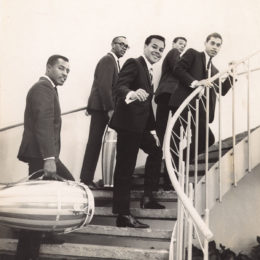Imagine my shock on landing in Barbados when I, speaking in my normal Trini accent, was misunderstood by a Bajan customs officer.
It was my first time out of Trinidad, and my first encounter face to face with a Bajan, but my shock was unbelievable. Trinis speak in a very sing-song dialect, but I never thought anyone would have trouble understanding me. I should have known my journey would be difficult after the numerous phone calls I had made weeks before to the University of the West Indies Cave Hill campus, where I was about to start my degree. The lady on the other end kept asking me to repeat myself. In my naivety, I thought we had a bad connection. Only now as I stood in the airport did I realise she really had not understood a word I was saying.
That morning at the airport, summoning all my patience, I spoke as slowly as I could to the officer, until he understood what I needed. Exasperated and exhausted from my thirty-five-minute flight (yes, I was exhausted after just thirty-five minutes — I’m scared of heights, so I was tired from anxiety), I made my way to Cave Hill and my hall of residence — only to be further accosted by accents from Jamaica, St Lucia, St Kitts, and Montserrat. What a day I was having. Apparently these people had been there for a while and had already got to know each other — and each other’s dialects. I, on the other hand, sat back quietly in my room and listened to the accents drifting in and out of the windows above and beyond me.
As any true Trini would tell you, it was not long before I was in the mix of the thing, mingling, laughing, and cajoling every which way with my own unique accent. Here was St Lucian Davis cussing us in patois under her breath while she stirred her bouillon; there was Jamaican Simone yapping in a dialect we could only understand when she stopped laughing, and showing her annoyance by hollering “cha,” the Jamaican version of a good steups. As for me, everyone begged me to speak more slowly. When they called for me and I replied, “Look meh,” they all laughed in unison. Apparently that was the funniest thing they ever heard.
The American exchange student (who was actually from the Philippines) was more intrigued by our various dialects than by the classes offered at UWI. At the end of the year, she dubbed herself a “trinipino,” because she believed she had to be part Trini, part Filipino. Our accents stood us apart and brought us together at the same time. We named ourselves “Bashment Block 8.” The block itself suffered the consequences of housing so many West Indians. One week it suffered a “tabanca” and by the next it was the “Love Boat.” St Lucian Faye insisted we were all “makaks” (monkeys), and shouted “heeeeeeeee salop” if you made the terrible mistake of falling or tripping in front of her. Others who did not fit our mould were given nicknames to match their demeanour. Hence on our block of sixteen girls we had a “Silence of the Lambs,” a “Pillsbury Dough Girl,” and a “Cockroach” — all appropriately named after their special oddities.
For Block Week, when we had to showcase our respective talents, we proceeded to sing a rendition of The Bassman by Shadow — in our own words and accents, of course. A culinary competition found us climbing over each other in the kitchen, trying to concoct sugar apple juice, mango cheesecake, and split peas soup.
When I made my trip back to Trinidad for the Christmas holidays, it was no wonder my family could not understand my stories of the “rat bat” flying through the dorm, or why I asked them to pass the i-run (that’s how “iron” is pronounced in Barbados). My exclamations of “guh bleh” astonished them. Yes, I had lost my Trini accent, to some extent, but I had come home with a Caribbean accent all my own. To me, there was no reason for them to be “corn-fused.”



















